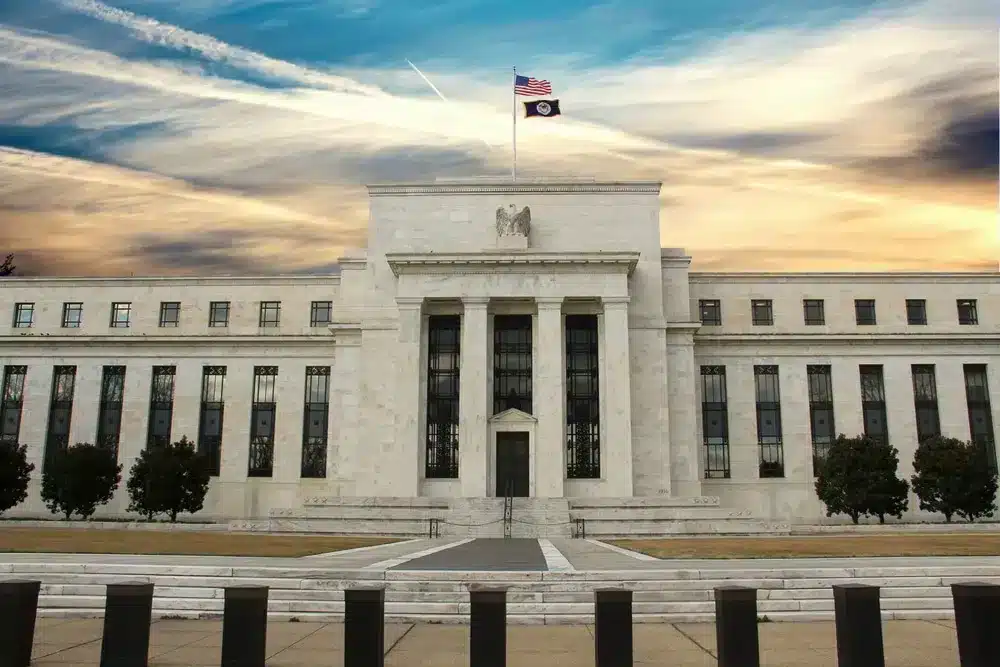Current Mortgage Rates have a major influence on the housing market. They affect homebuyers, sellers, as well as lenders offering mortgages. So what exactly is a mortgage rate and how do they change?
Mortgage rates are the interest rates charged on mortgage loans. They fluctuate over time depending on a number of factors, including economic activity and the Federal Reserve. When economic activity is strong and housing demand is high, current mortgage rates usually go up; conversely, when there’s weak economic activity or little demand for homes, rates may decrease.
One important factor affecting current mortgage rates is the Federal Reserve’s monetary policy. The Fed sets a target for an interest rate known as the federal funds rate that serves as a benchmark for other rates, such as current mortgage rates. When this rate changes due to Fed changes or lack thereof, it can cause ripple effects throughout the mortgage market. It should be remembered that while the Fed has influence over overall market trends, individual lenders also set their own current mortgage rates based on risk assessments and profit targets.
Why Do Current Mortgage Rates Matter? For home buyers, an increase in current mortgage rates means higher monthly payments on their loan. This may cause them to delay purchasing a new property or opt for a less costly property. On the other hand, sellers may witness slower activity in the housing market and fewer potential buyers qualifying for loans with higher rates. As for lenders, changes to mortgage rates impact their profits as they adjust to changing market conditions and competition from other lenders offering different rates.
It’s essential to stay informed about current mortgage rates if you’re searching for a new home or refinancing your existing loan. Do your due diligence and compare offers from multiple lenders in order to find the best deal for your specific situation, taking into account not just interest rates but additional fees such as closing costs when making your decision.

Top 6 Things that Affect Mortgage Rates
1. The Federal Reserve
The Federal Reserve is the primary factor influencing current mortgage rates. They set the federal funds rate, which is an overnight interest rate at which banks lend money to each other. Any changes in this interest rate have a ripple effect on all other interest rates, including mortgage rates.
2. Inflation
Inflation is another key factor influencing current mortgage rates. Inflation refers to the rate at which prices for goods and services increase over time; when inflation is low, mortgage rates often follow suit; on the other hand, when inflation is high, rates can go up accordingly.
3. The Housing Market
The state of the housing market also influences current mortgage rates. When conditions are favorable, demand for mortgages is high and rates tend to be higher; on the contrary, when conditions are depressed, demand drops off significantly and rates tend to be lower.
4. Employment
Employment is another factor that impacts mortgage rates. When unemployment is high, people are less likely to qualify for a loan and demand for mortgages is low. As such, rates tend to be lower when unemployment is high. Conversely, when unemployment drops and people feel secure about their job security, they become more likely to obtain one and demand for mortgages increases significantly – leading to higher prices when unemployment is low.
5. Interest Rates
Interest rates have a direct influence on mortgage rates. When interest rates are low, mortgage rates usually follow suit; conversely, when interest rates rise, so do mortgage rates.
6. The Stock Market
The stock market can have an indirect effect on mortgage rates. When the stock market performs well, people feel wealthier and are more likely to purchase houses or take out mortgages. Therefore, demand for mortgages rises and rates tend to go up. Conversely, when conditions are bad in the stock market, people become less motivated by wealth and less inclined to take out loans – thus decreasing demand for mortgages and driving up rates accordingly.
How the Federal Reserve Affects Current Mortgage Rates

If you’re shopping for a new home, mortgage rates are likely on your mind. After all, the lower the rate, the more affordable your monthly payments will be. But have you ever stopped to think how mortgage rates are determined? It turns out that the Federal Reserve plays an important role in setting them.
The Federal Reserve is the central bank of the United States and responsible for setting monetary policy, including setting the target for the federal funds rate. This rate determines overnight lending between banks; when it goes up, so do rates on other short-term loans like credit cards and auto loans – even mortgage rates! Lenders perceive more risk when lending money, so they often charge higher interest rates to compensate.
There are other factors that affect mortgage rates besides just the federal funds rate. The overall state of the economy plays a major role; when things look good and job growth is strong, demand for homes tends to increase which can lead to higher prices and higher mortgage rates. On the contrary, when things are bad, demand decreases and mortgage rates typically decrease accordingly.
When looking to take out a mortgage, remember that current rates are determined by several factors including the actions of the Federal Reserve. By comprehending how these elements interact, you’ll be in an advantageous position to secure an excellent rate on your home loan.
How Inflation Affects Current Mortgage Rates

Blog Introduction: Inflation is the phenomenon in which prices for goods and services increase over time. The rate of inflation is the percentage change in price level over this period, usually measured by the Consumer Price Index (CPI), which measures changes in prices across a wide range of consumer purchases.
The Consumer Price Index (CPI) measures the prices of a fixed basket of goods and services from month to month. Items in this basket are weighted according to their importance in terms of a representative consumer’s overall budget, which is determined through surveys asking about spending patterns. The CPI index is then calculated by taking all prices within this basket and weighting them based on importance; this number is known as the CPI index.
When computing inflation rates, the CPI index for any given month is compared to its corresponding CPI index from one year prior. So if June 2020’s CPI index was 120 and June 2021’s was 121, we can say there has been an overall inflation rate of 0.83% during that one-year span.
How Inflation Affects Mortgage Interest Rates
In general, inflationary pressures lead to higher interest rates. This is because when inflation goes up, so does the cost of living; consequently, people demand higher wages in order to maintain their standard of living. Businesses then need to raise prices on their goods and services in order to cover these increased expenses, creating even greater inflationary pressure.
To combat inflationary pressure, the Federal Reserve often raises interest rates to slow economic growth and prevent inflation from out of control. When interest rates go up, mortgage rates usually follow suit since home loans are usually tied to longer-term interest rates like the 10-year Treasury yield.
In conclusion, higher inflation typically translates into higher mortgage rates as lenders attempt to protect themselves from potential losses down the line. It’s important to keep an eye on all factors when making your decision about whether or not to purchase or refinance a home, since other factors can also impact rate determination.
How the Housing Market Impacts Current Mortgage Rates

When searching for a new home, there are numerous factors to take into account – location, size, price. But one factor often overlooked is the state of the housing market and how it may influence mortgage rates.
In a strong housing market, demand for homes is high and prices are going up. This could lead to higher mortgage rates as lenders are more likely to raise them in order to maximize profits. Conversely, in a weak housing market, prices are falling and there’s less demand for houses; thus, lenders may lower rates to encourage people into homeownership.
If you’re thinking about purchasing a home, it is essential to stay informed on the state of the housing market so you can budget effectively. Read on to discover more about how the housing market affects mortgage rates.
The Relationship Between Mortgage Rates and The Housing Market
Mortgage rates and the housing market typically move in opposite directions – when one goes up, the other comes down. When prices are rising in a strong housing market, lenders can charge higher interest rates while still making a profit. Conversely, when conditions are bad and home sales are down, lenders need to reduce rates in order to encourage people to purchase homes.
How The Housing Market Impacts Mortgage Rates
The state of the housing market has a significant effect on mortgage rates. When demand for homes is high and prices are rising, lenders can charge higher interest rates while still making profits. Conversely, in a weak housing market, prices are falling and there’s less demand for properties; consequently, mortgage rates tend to be lower since lenders need to reduce them in order to encourage people to purchase property.
When looking to purchase a home, it’s essential to pay close attention not only to current mortgage rates but also the state of the housing market so you can budget appropriately. By understanding how these two elements interact, you will be better equipped to make informed decisions about when and where you should buy your next property.

How Employment Affects Current Mortgage Rates
Blog Introduction: If you’re in the market for a new home, employment is likely one of many factors lenders take into account when deciding whether or not to approve your mortgage application. But you may not realize just how significant employment history is to lenders when calculating your interest rate on a mortgage.
How Employment History Affects Mortgage Interest Rates
When applying for a mortgage, lenders will review your credit report and employment history. They want to see that you have steady income and an impressive job history. The longer you’ve been employed, the greater the chance that approval will come your way and with it lower interest rates.
If you’ve recently changed jobs, that doesn’t have to be a deal-breaker. Lenders will still consider your application but may charge a higher interest rate since they perceive you as being more risky. Self-employed individuals also face similar hurdles; tax returns and other financial documents must be presented for lenders to demonstrate a steady source of income.
Employment is just one of the many factors that go into approval for a mortgage, but it’s an important one. Lenders want to see that you have steady income and an impressive job history. The longer you’ve been employed, the greater your chances of approval and lower interest rates. If you recently changed jobs or became self-employed, don’t despair; you can still qualify but may have to pay a higher interest rate.
How Interest Rates Affect Current Mortgage Rates

Current mortgage rates and interest rates are closely related, yet distinct. Your mortgage rate is the amount you pay on your home loan; while an interest rate is what you’re charged when borrowing money. Generally speaking, your mortgage rate will be lower than your interest rate.
Interest rates are determined by central banks, such as the Federal Reserve in America. When these institutions raise or lower interest rates, current mortgage rates usually follow suit; banks charge higher costs when they anticipate borrowing costs will go up in the future; on the other hand, when central banks cut rates it often indicates economic growth has slowed and inflation has moderated; this encourages more borrowing and spending which could potentially spur economic expansion. Thus, while central bank actions don’t directly impact current mortgage rates, they do have an indirect influence.
How do changes in interest rates affect my monthly payment?
Your interest rate affects how much you’ll pay each month on your mortgage payment – and ultimately for your home. With a fixed-rate mortgage, payments remain fixed no matter what happens with interest rates. But if you have an adjustable-rate mortgage (ARM), payments could go up or down depending on market conditions.
The table below illustrates how a change of just 1% in interest rates would impact a $250,000 loan with various terms and fixed-rate periods. As you can see, even a slight shift can have a substantial effect on your monthly payment – as well as how much you pay over time for your home.
30-Year Fixed-Rate Loan
Change in Interest Rates* Monthly Payment Total Interest Paid Total Paid
1% increase $1,267 $184,609 $434,609
1% decrease $1,157 $167,291 $417,291
15-Year Fixed-Rate Loan
Change in Interest Rates* Monthly Payment Total Interest Paid Total Paid
1% increase $1,698 $101,045 $351,045
1% decrease $1,543 $91,290 $341,290
5/1 ARM Loan
Change in Interest Rates* Monthly Payment Total Interest Paid Total Paid
1% increase $853 $66,288 $316,288 1% decrease $790 $61,288 $311,288
Remember, these are just examples; your actual monthly payment may differ based on factors like the loan type you select and credit score. Furthermore, it’s essential to understand how changes in interest rates affect both how much you’ll pay each month and overall for your home. With this understanding, you can manage both short-term fluctuations and long-term trends related to current mortgage rates more effectively.
How the Stock Market Affects Current Mortgage Rates

Home buyers must understand how the stock market can influence current mortgage rates. After all, it is one of the primary drivers of economic activity and can have a direct effect on interest rates.
When the stock market is performing well, current mortgage rates usually stay low. This is because investors feel more secure about the economy and are willing to lend money at lower interest rates. On the contrary, when times are tough on Wall Street lenders may raise rates in an effort to offset their concern about getting their money back by charging higher interests.
Of course, there are other factors that can influence mortgage rates as well, such as inflation and the Federal Reserve’s policies. But one of the most significant influences on current mortgage rates is what’s happening in the stock market. So if you’re thinking of purchasing a home, it would be wise to monitor developments on that front.
The Relationship Between Mortgage Rates and The Stock Market
Mortgage rates and the stock market are closely tied for several reasons. When the stock market does well, investors feel confident about lending money at lower rates; conversely, when conditions are difficult, lenders worry about getting their money back and may raise interest rates accordingly. Furthermore, mortgage-backed securities (MBSs) remain a popular investment choice among big banks and institutional investors alike.
MBS are bonds backed by a pool of mortgages. When MBS prices go up, current mortgage rates usually decrease as banks become cheaper to originate loans. Conversely, when MBS prices decline, mortgage rates typically go up since it becomes more costly for them to originate loans.
As you can see, the stock market has a direct influence on mortgage rates. That is why it is essential for home buyers to stay abreast of what’s going on in the stock market before they begin searching for a home loan.
Finally, the stock market impacts current mortgage rates in several ways. When investors feel confident about the economy, they’re more likely to lend money at lower interest rates. Conversely, when lenders worry about getting their money back, they often raise rates. Furthermore, changes to MBS prices can cause mortgage rates to go up or down depending on whether MBS prices rise or fall. So if you’re thinking about purchasing a home, make sure you pay attention to what’s going on in the stock market!
Use Mortgage Rater Daily for best Rates

Given the current low mortgage rates, now might be an excellent time to purchase or refinance your current home. If you’re unsure where to start with this process, our friends at Mortgage Rater can assist you in finding the best deal for your individual situation.
Mortgage Rater is a free mortgage rate comparison tool that allows users to compare current mortgage rates from various lenders and get personalized advice and tips on saving money on your mortgage. So if you’re searching for the best rate, make sure you check out Mortgage Rater!



